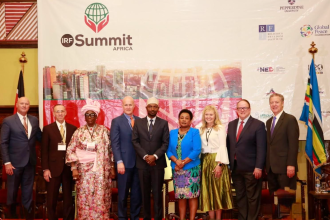“Our youths are going back to paganism. This emerging trend is nowhere on social media but for us here, this is our greatest worry. Very young boys and girls are going back to traditional practices,” Fr. Anaehobi said in the September 3 interview with ACI Africa.
The Secretary General of the Regional Episcopal Conference of West Africa (RECOWA) said that at the heart of the worrying trend is the increasing insecurity in the region.
“There is the false belief that in the face of the current insecurity in the region, Christianity cannot protect anyone. They believe that with traditional religion, one can get some traditional way to protect themselves,” he said
“According to our young people, Christianity is not as practical as traditional religion,” Fr. Anaehobi said, and added, “When you go to the Churches in our villages, you will not find young people there. They are out there practicing traditional religion.”
He said that because of poverty and lack of employment, young people in Nigeria, especially in the rural parts of the country are avoiding the Church where they are told to go ahead and give the little they have to get blessings.
They say that with traditional religion, no one is allowed to give much, Fr. Anaehobi shares with ACI Africa, adding that young people embracing African religious practices instead “meet, slaughter animals, perform rituals, dance and go home with full stomachs.”
At the moment, the trend can only be observed in rural villages, the Nigerian Catholic Priest says, and explains, “We are not worried about the cities because there, the Church is full of young people. What we worry about the most is our villages.”
To encourage young people to stay in the Church, Fr. Anaehobi has suggested that the Church in Nigeria rethinks its traditional role as just preaching the word of God and look for practical ways to empower youths in the country.
“As we teach and give hope, we must go out and meet these young people where they are. They are out there looking for solutions to their poverty and unemployment,” he said.
He added, “The Church may not have the means to get our young people employed but we can organize mentorship programs for them and facilitate their linkages with potential recruiters.”







